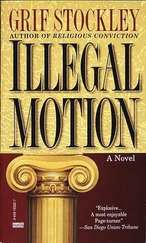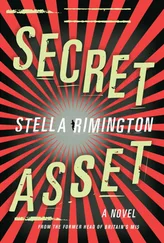Susan Carlyle lived at South Lodge, the house in the Nadder Valley where Liz had grown up. When Liz was a child the pretty octagonal lodge had guarded the entrance to the Bowerbridge sporting estate, where her father had been the manager. But Jack Carlyle had died and so had the estate’s owner. Bowerbridge’s woods and coppices had been sold off, and its gardens had become a specialist plantsman’s nursery. Pressed for money, Susan had started work there; now she ran the place. Last year she and Liz had had a scare when a lump Susan had detected had turned out to be malignant. Thankfully, surgery seemed to have been successful, though who could be sure, and she was back working just as before in the nursery.
Unfortunately the illness had coincided with the investigation of the mole in MI5 and Liz still felt guilty that she had not been able to be more available.
So, shedding her wet clothes in a heap on the bathroom floor, wrapping herself in her dressing gown and pouring herself a glass of wine, she dialled her mother’s number, bracing herself for a long chat.
Her mother answered on the second ring. “Hello, darling. I’m so glad you rang. I wanted to ask you a favour.”
What on earth is this going to be? wondered Liz, noticing her mother’s unusually bright and brisk tone.
“I’ve been asked to the theatre on Saturday evening and I wondered if I could come and stay with you.”
“Well, of course you can,” said Liz immediately, trying to disguise her amazement. Her mother had never once expressed any interest in coming to London since Liz had lived there. Quite the opposite. She had always given the impression that she thought London a sink of iniquity. “Who are you going with?” asked Liz.
“No one you know, dear. I met him when I was ill. He’s got some tickets for that play with Judi Dench in at the Haymarket, on Saturday evening. So if that’s fine with you I’ll catch a mid-morning train and get a taxi from the station. Be with you about two o’clock.”
“All right, Mother,” said Liz, hardly able to believe what she was hearing. “Shall I come and meet you at the station?”
“No need, darling,” came the reply, “I’ve got your address and I’m sure the taxi man will find it. Must dash now. See you Saturday.”
Liz sat down and drained her glass of wine. What on earth was going on? Her mother, with a boyfriend. Is that what it was? It sounded like it. She couldn’t believe it and she felt a flash of resentment. All those weekends she’d forced herself to drive down to Wiltshire when she would much rather have stayed in London. Now there was her mother happily paired up while she still had no close boyfriend.
What could he be like? She hoped he was suitable. What if he was a fortune hunter? How ridiculous you are being, she said to herself. Mother hasn’t got a fortune. But though she tried to laugh herself out of it, she went on feeling faintly uneasy and disturbed at this totally unexpected turn of events.
As she sat and brooded, she suddenly remembered Piet. He was expecting to come on Saturday. She would have to put him off. She did not want Piet sharing her bed whilst her mother was in the spare room next door, so feeling very confused and thoroughly disappointed at the ruining of her weekend she rang Piet.
At the end of that conversation she felt worse. When she’d explained what had happened, Piet had replied that he was about to ring her. His meetings in Canary Wharf had been discontinued and he would not be coming to London so often. He had in any case been meaning to tell her that he had met someone in Amsterdam whom he was now seeing regularly, so he thought it best if they stopped seeing each other. He added charmingly that he would miss her and the jolly weekends they had spent together and he wished her the best of luck, before ringing off.
So, thought Liz, that’s that. Well at least she couldn’t blame the job for the end of that relationship. But as she sat in the bath in her bright, freshly tiled bathroom, she reflected that everyone’s life seemed to be improving except hers. And now she was stuck with this ridiculous scheme dreamt up by Brian Ackers and Geoffrey Fane and was going to have to spend a week in Cambridge with some mad old Russian bat.
She had been trained to deal with any crisis, if necessary with violence, just as she’d dealt with that mugger the other month. In her lengthy training, they had made her kill. They took convicts out of the prisons—those who’d been sentenced to death—and put the trainees up against them. At the beginning they’d intervened to make sure the trainees survived. But later in the course, it was a free contest. No one interfered; it was a fight to the death. She had been determined that whoever died, it would not be her. She had surprised herself with the ease with which she killed—stuck the knife in or pulled tight the garrotte—and they had noticed too, the instructors, those hard-eyed, expressionless men whose job it was to turn out graduates of their courses who could survive in the most extreme situations. So she was chosen for assignments where violence was likely, though she had not expected to have to use it so early in this job, and not on the streets of London.
But, as she sat in her latest apartment off Victoria Street, it was not the possibility of violence that was causing her concern. It was something completely unexpected—the intrusion on the scene of British Intelligence. What, she wondered, had brought them buzzing around Brunovsky like flies? There must have been a leak, or why else would they have suddenly turned up? And why had he encouraged them? How much did they know and how best to deal with the situation?
Unzipping the computer bags, she took out the laptop and its small black companion, that would, she hoped, provide her with the answers, and laid them out on the dining table. Half an hour later, she leant back in her chair with a satisfied grunt and, looking out of the window at Westminster Cathedral, glowing pink in the setting sun, she imagined her message bouncing around the world, disguising itself as it moved from server to server, on its way to its eventual destination, a desk in a Moscow office building. A government office building.
He knew it was crucial to show you were in charge from the start. On the training course they had taught him that if you began with an iron fist you could lighten up later on, but that it never worked the other way around.
Michael Fane ignored the butterflies fluttering in his stomach. This was his chance to show what he could do. He looked out of the thin window at the trees above Berkeley Square. The weather had reverted: after a glorious early morning, a sepia trail of cloud moved in with the easterly wind like ominous writing in the sky.
He sat down but found he couldn’t sit still. The people here at the agency had given him their interviewing room, which was small and square, down the hall from Brigadier Cartwright’s spacious office. When Liz Carlyle announced she’d be away for a week and asked him to do the interview in her place, he was thrilled. You had to belly up to the bar sometime, he told himself, using the cowboy lingo of the westerns he loved. His father had been contemptuous of those movies, implying that he knew about the real thing. He probably did, Michael thought crossly, and doubtless this forthcoming interview would be beneath him. Geoffrey must have recruited countless agents in his time—in much more difficult circumstances. What else could he have been doing all those years abroad? Even the teenage Michael Fane had known enough to understand his father wasn’t really a cultural attaché.
Not that he’d seen much of him. There was the occasional outing—a day at Lord’s, watching the Australians in the Test; lunch at the Traveller’s Club when Michael turned sixteen—as if his father, suddenly remembering he had a son, had dutifully decided to try and “bond.” When his mother at last grew fed up with Geoffrey’s absences, always excused as a matter of work, and her patience had finally snapped, Michael didn’t blame her. Now she lived in Paris, remarried to Arnaud, an international lawyer—the kind of stable haut bourgeois she should have married in the first place.
Читать дальше












